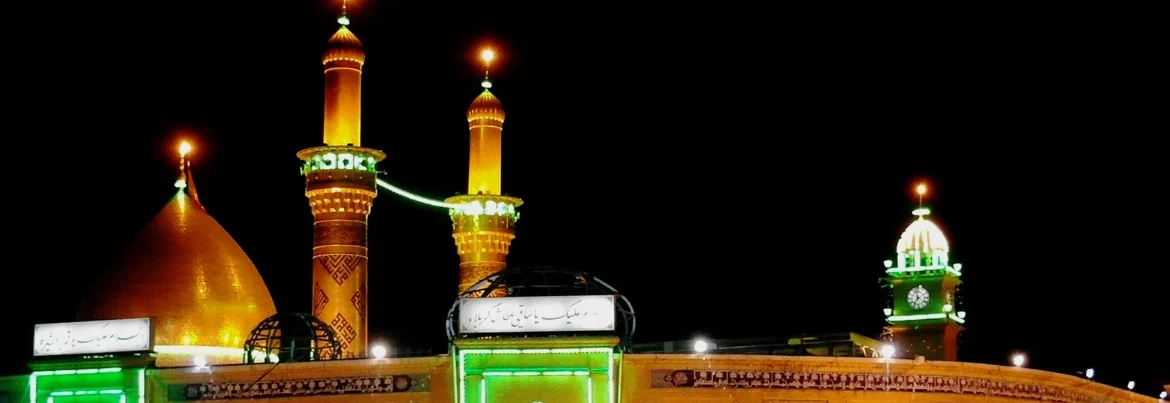
The Battle of Karbala: History, Significance & Lessons
Introduction
The Battle of Karbala is one of the most important and heart-touching events in Islamic history. It took place on the 10th of Muharram in the year 61 AH (680 CE) in the land of Karbala, Iraq. This tragic event not only changed the course of Muslim history but also left lessons that continue to inspire Muslims around the world. It represents sacrifice, truth, resistance against oppression, and the importance of standing firm for justice.
In this article, we will explore everything about Karbala—what it is, why it is called Karbala, the detailed story of the battle, its significance in Islam, and the timeless lessons we learn from it. We will also answer common questions related to Karbala at the end.
What is Karbala?
Karbala is a city in modern-day Iraq, located near the Euphrates River. It is famous for being the site of the Battle of Karbala and the martyrdom of Imam Hussain ibn Ali (RA), the beloved grandson of Prophet Muhammad ﷺ. Today, Karbala holds a central place in Islamic history, and millions of Muslims visit it every year to pay respect to the martyrs of Karbala.
Why is it Called Karbala?
The name Karbala has several explanations:
-
Some historians say it comes from the Arabic words “Karb” (grief) and “Bala” (trial), meaning “land of grief and trial.”
- Others suggest it is derived from ancient Babylonian or Aramaic origins, referring to fertile land near the river.
Regardless of its linguistic origin, the name Karbala became forever tied to the tragedy that unfolded there.
The Historical Background of Karbala
To understand why the battle happened, we need to look at the political and religious situation of the time.
-
After the death of Prophet Muhammad ﷺ in 632 CE, leadership of the Muslim community passed to the rightly guided caliphs: Abu Bakr (RA), Umar (RA), Uthman (RA), and then Ali ibn Abi Talib (RA).
-
After Ali (RA) was assassinated, his son Hassan (RA) briefly became caliph but later made a peace treaty with Muawiyah ibn Abi Sufyan (RA) to avoid further bloodshed.
- When Muawiyah died in 680 CE, his son Yazid was declared the ruler. Yazid demanded allegiance (bay‘ah) from Muslims, including Imam Hussain (RA).
Imam Hussain (RA) refused to give allegiance to Yazid because he believed Yazid’s rule did not represent the true teachings of Islam and justice. This refusal eventually led to the events at Karbala.
The Journey of Imam Hussain (RA)
When Yazid became caliph, letters from the people of Kufa (Iraq) reached Imam Hussain (RA), inviting him to lead them against Yazid’s rule. They promised loyalty and support. After much thought, Imam Hussain (RA), along with his family and companions, set out from Makkah towards Kufa.
However, Yazid’s governor intercepted the people of Kufa, and the promised support never came. Imam Hussain (RA) and his caravan were stopped near the plain of Karbala, where they were surrounded by Yazid’s army.
The Events of the Battle of Karbala
-
On the 2nd of Muharram 61 AH, Imam Hussain (RA) and his family reached Karbala and were blocked from access to water from the Euphrates River.
-
Yazid’s army, numbering thousands, surrounded Imam Hussain (RA) and his small group of about 70-80 companions, including his family members.
-
For several days, Imam Hussain (RA)’s family suffered from thirst and hunger. Even children were denied water.
-
On the 10th of Muharram, known as Ashura, the battle took place. Despite being heavily outnumbered, Imam Hussain (RA) and his companions fought bravely.
-
One by one, his companions and family members were martyred, including his beloved sons, brothers, and nephews.
-
Finally, Imam Hussain (RA) himself was martyred. His sacrifice became a symbol of standing against tyranny and injustice.
The Martyrs of Karbala
Among the noble martyrs were:
-
Imam Hussain ibn Ali (RA)
-
Abbas ibn Ali (RA) (known as Alamdar, the flag bearer)
-
Ali Akbar (RA), the son of Imam Hussain
-
Ali Asghar (RA), the infant son of Imam Hussain who was killed in his father’s arms
-
Many companions and relatives who remained loyal until the end
Significance of Karbala in Islam
The Battle of Karbala holds deep significance for Muslims:
-
Sacrifice for Truth: Imam Hussain (RA) gave up his life instead of giving allegiance to an unjust ruler.
-
Reminder of Ashura: The 10th of Muharram is observed by Muslims worldwide as a day of remembrance, fasting, and reflection.
-
Unity in Struggle Against Oppression: Karbala teaches Muslims that Islam is not just about rituals but also about justice, truth, and moral responsibility.
Lessons from the Battle of Karbala
-
Stand for Justice: No matter how strong the oppressor is, Muslims must stand with the truth.
-
Patience and Faith: Imam Hussain (RA) showed immense patience, even in extreme hardship.
-
Importance of Leadership: Karbala reminds us that leaders must be righteous, not corrupt.
-
Sacrifice for Islam: True success lies not in worldly power but in pleasing Allah by upholding His commands.
-
Value of Family and Loyalty: The companions of Imam Hussain (RA) showed loyalty and love for their leader, setting an example for all Muslims.
Connection to Today’s Muslims
Karbala is not just history – it is a living lesson. Every Muslim can reflect on Karbala in their personal life:
-
Choosing honesty over dishonesty in business.
-
Standing firm in faith, even when surrounded by difficulties.
- Teaching our children about bravery, truth, and patience.
At our online Quran academy, we not only teach students how to read the Quran correctly but also help them understand Islamic history and values. Stories like Karbala inspire our students to live by the Quran and Sunnah, with strong character and deep faith. Our qualified tutors guide learners one-on-one to ensure they grow spiritually.
Frequently Asked Questions (FAQs)
1. What is the Battle of Karbala?
The Battle of Karbala was a conflict between Imam Hussain (RA) and Yazid’s army in 680 CE, where Imam Hussain and his companions were martyred for standing against injustice.
2. Why did Imam Hussain (RA) refuse allegiance to Yazid?
He believed Yazid was an unjust ruler who did not follow Islamic principles, and giving allegiance would legitimize his corrupt rule.
3. When did the Battle of Karbala take place?
It took place on the 10th of Muharram, 61 AH (October 10, 680 CE).
4. Who was martyred at Karbala?
Imam Hussain (RA), his family members, including his infant son Ali Asghar (RA), and around 70 loyal companions.
5. Why is Karbala significant for Muslims?
It teaches lessons of sacrifice, justice, patience, and resistance against oppression.
6. How do Muslims commemorate Karbala?
Muslims remember the tragedy during Muharram, especially on Ashura, through fasting, lectures, and reflection on the lessons of Karbala.
7. What is the meaning of the word Karbala?
It is commonly understood to mean “land of grief and trial”.
Conclusion
The Battle of Karbala is a timeless story of courage, sacrifice, and devotion to Allah. Imam Hussain (RA) stood firm against tyranny, setting an eternal example for Muslims. Karbala reminds us that true success lies in faith, justice, and sacrifice for the sake of Islam.
By learning about Karbala and the lessons it holds, Muslims can strengthen their character, faith, and relationship with Allah.

